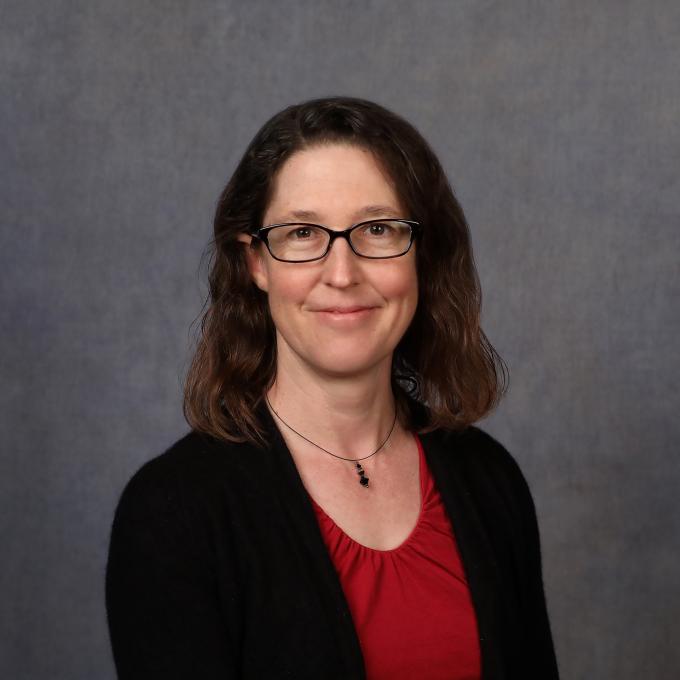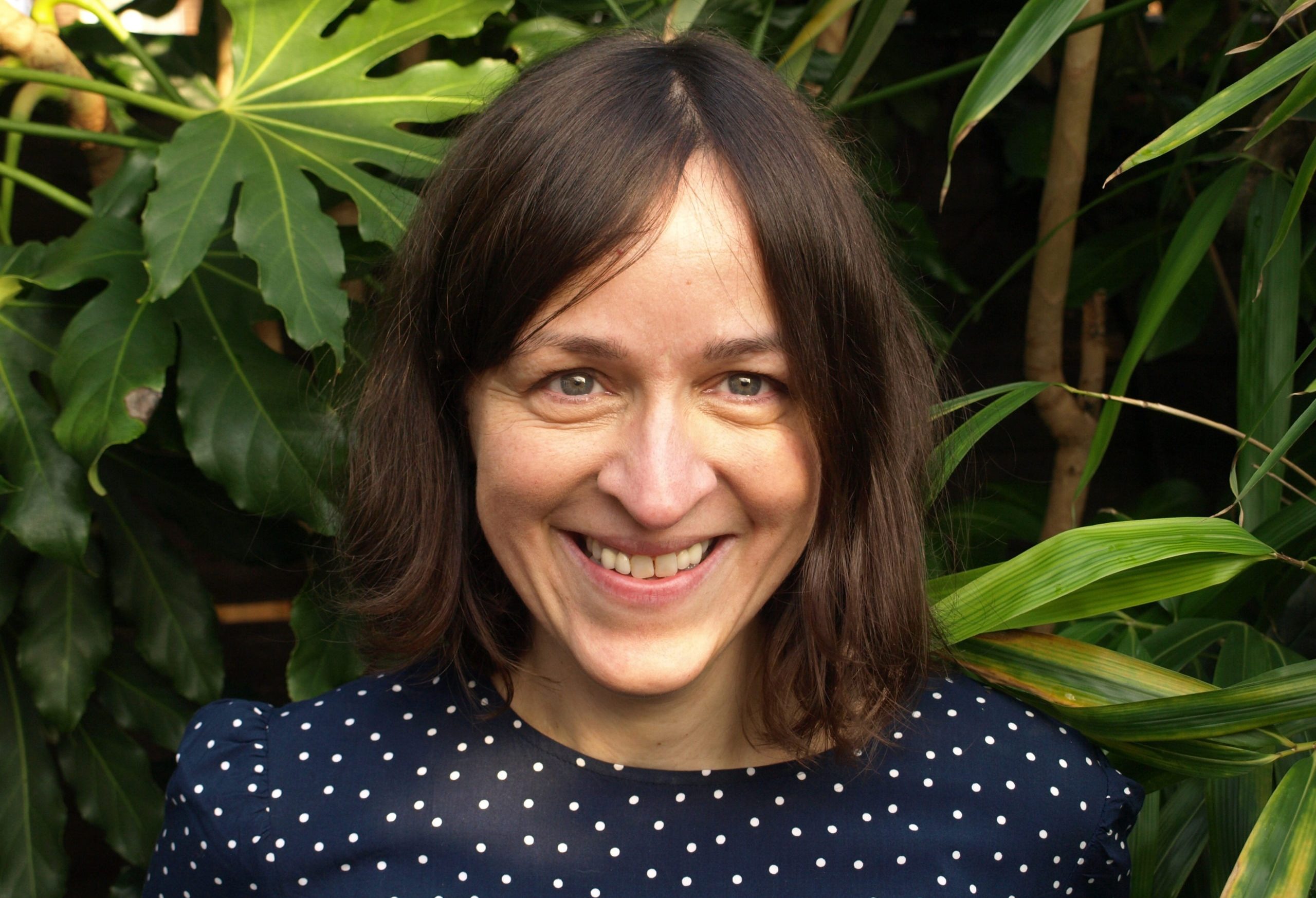Panelists
Careers in Academia
Wednesday, March 17, 12:30 p.m.–2:00 p.m.

Dr. Karen Hales
Moderator
Karen G. Hales is a Professor of Biology at Davidson College, where she has been a faculty member since 2000. A graduate of Swarthmore College, Dr. Hales earned her PhD at Stanford University, working with Dr. Minx Fuller, and performed postdoctoral work at the University of North Carolina at Chapel Hill with Dr. Mark Peifer and Dr. John Pringle. She was a member of the Drosophila Board from 2010 to 2013 as the representative for primarily undergraduate institutions (PUIs) and also served on GSA’s Education Committee from 2012 to 2014. As Davidson’s elected faculty head, she co-chaired the 2013 Dean of Faculty search and has served on many faculty search committees, more recently as a trained Equity Adviser to ensure an inclusive and unbiased process at all stages. From 2016 to 2019 she was a member of Davidson’s Faculty Tenure Committee. Her research focuses on mitochondrial dynamics during Drosophila melanogaster spermatogenesis, and she has also published recently on inclusive pedagogical frameworks specific to genetics topics.

Dr. Hugo Bellen
Hugo Bellen is an Investigator of the Howard Hughes Medical Institute and Distinguished Service Professor at Baylor College of Medicine (BCM) in the Departments of Molecular and Human Genetics and Neuroscience. Originally from Belgium, Dr. Bellen earned a degree in Business Engineering from the Solvay School of Business at the University of Brussels, a Pre-Veterinary Medicine degree from the University of Antwerp and a doctoral degree in Veterinary Medicine from the University of Ghent. He received his PhD in Genetics from the University of California at Davis and completed postdoctoral research in the laboratory of Dr. Walter Gehring at the University of Basel in Switzerland. He started his independent career as an HHMI Investigator at BCM in 1989 and joined the Neurological Research Institute at Texas Children’s Hospital at its inception in 2011.

Dr. Irene Miguel-Aliaga
Irene Miguel-Aliaga is Professor of Genetics and Physiology at Imperial College London, and Chair of the Genes & Metabolism Section at the MRC LMS, London (UK). She received her PhD in Genetics from the University of Oxford (UK) and explored how neurons develop during postdoctoral work at Harvard (USA), Linköping University (Sweden) and NIMR (now Crick Institute, UK). First at Cambridge and now in London, her research group is investigating how and why the intestine communicates with other organs such as the brain. Their work has revealed that the intestine of males and females is very different, which impacts food intake, gamete production and tumour susceptibility. Investigating how the intestine senses and responds to nutrients, her lab also discovered an intestinal zinc sensor that regulates food intake via Tor signalling. Irene was the recipient of an ERC Starting Grant and currently holds an ERC Advanced Grant. She was elected to the EMBO YIP programme in 2012, to EMBO in 2017 and to the Academy of Medical Sciences in 2019. She was also awarded a Suffrage Science Women in Science award in 2018.

Dr. Pamela Geyer
Pamela Geyer is Professor of Biochemistry at the University of Iowa. She earned a BSc degree in Biochemistry at McGill University in Montreal, Canada and a PhD in Biochemistry at The Ohio State University. After completing her PhD, Dr. Geyer embarked on postdoctoral training at Johns Hopkins University, beginning her career of investigation using Drosophila as a model. Her current research efforts focus on how changes in nuclear structure cause declines in function that accompany physiological aging. As a faculty member in the Department of Biochemistry, Dr. Geyer has had a strong commitment to training and building a diverse community of geneticists, serving both as a research mentor and co-Director of the MD-PhD graduate training program. Dr. Geyer has an extensive national service record, including serving on multiple NIH R01 and TWD panels, as a member of the Genetics Society Board of Directors, working as an Associate Editor in Genetics, and co-organizing the Gordon Research Conference on Epigenetics and two Drosophila Research Conferences.

Dr. Erika Matunis
Erika Matunis, Professor of Cell Biology at the Johns Hopkins University School of Medicine in Baltimore, MD, received her doctoral degree from Northwestern University in 1992 for studies of heterogeneous nuclear ribonucleoproteins (hnRNPs) in Gideon Dreyfuss’ lab. She learned Drosophila genetics during her postdoctoral training with Steve DiNardo at Rockefeller University, contributing to the development of the Drosophila testis as a model stem cell system. She established an independent lab as a Staff Associate at the Carnegie Institution’s Department of Embryology in 1998, where her lab provided an early description of the molecular regulation of stem cell renewal in vivo. She joined the Johns Hopkins Faculty in 2002, and was promoted to Full Professor in 2013. She has mentored over forty students over the past two decades together with Dr. Margaret deCuevas, an invaluable faculty research associate in the lab. Their group continues to study the basic biology of stem cells and their niches, primarily in the Drosophila testis, but also occasionally in the Drosophila ovary, and in the mouse. Dr. Matunis has served as a Board member and is currently serving as Secretary for GSA.

